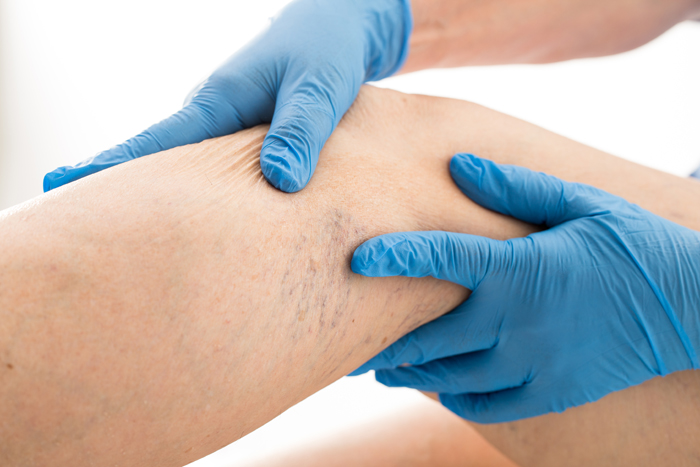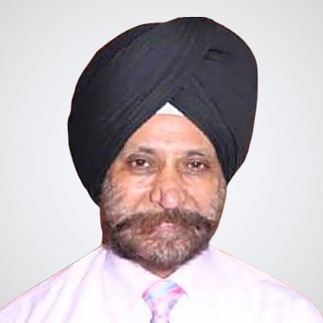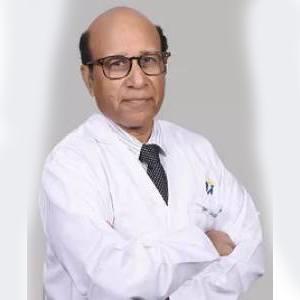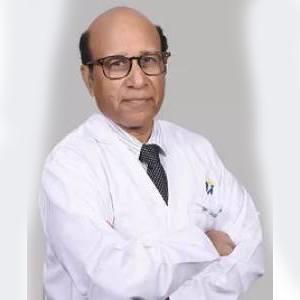Venous Insufficiency Treatment in Chirag Enclave, Delhi
Introduction
Venous diseases occur when your veins get damaged. Veins are blood vessels that carry deoxygenated blood from all parts of your body to your heart for oxygenation. When the walls of your veins get damaged due to various causes like injury, trauma, needles, and so on, there is a backflow of blood in your veins. This causes a pressure buildup which can lead to clot formation, and multiple diseases termed venous diseases. Blood clots, deep vein thrombosis (blood clots in the deep veins), superficial venous thrombosis (blood clots in the superficial veins), chronic venous insufficiency (leg swelling and ulcers due to pooling of blood), varicose veins (abnormal, dilated blood vessels), and ulcers come under the umbrella term of venous diseases.

What are the Symptoms of Venous Diseases?
Your symptoms will vary depending on which type of venous disease you have. However, a few common symptoms of venous diseases are as follows.
- Burning in your leg
- Itchiness or discoloration of the skin on your leg
- Slow healing leg sores
- Fatigue
What are the Causes of Venous Diseases?
There are multiple causes for venous diseases depending on the type of venous disease that you have. Some of the common causes are as follows.
- Pooling of blood in your lower extremities due to immobility, post-surgery, or long trips
- Injury to your blood vessels caused by trauma, needles, or infections
- Specific conditions which increase your chances of blood clotting like hereditary factors, certain medications, or diseases
- Certain cancers can predispose you to certain venous disorders like deep vein thrombophlebitis
- Pregnancy can predispose you to superficial thrombophlebitis
When Should You See a Doctor?
If you have difficulty breathing and suffer from bleeding or other symptoms that cause you concern, do reach out to a vascular specialist or vascular surgeon immediately.
For further clarifications, do not hesitate to search for a venous diseases specialist near me, a venous diseases hospital near me, or
Request an appointment at Apollo Spectra Hospitals, Chirag Enclave, Delhi
Call 1860 500 2244 to book an appointment
What is the Treatment for Venous Diseases?
Treatment for venous diseases depends on the type of disease that you have. Treatment options vary from lifestyle changes like exercise, maintaining a healthy weight, wearing compression stockings to minimally invasive procedures to surgical interventions. Some of the options are as follows.
- Medications that will prevent clot formation or help in dissolving the clots
- Stenting or angioplasty will help open up any narrowed or blocked veins
- Wearing stockings as compression therapy
- Sclerotherapy involves the insertion of a solution into the affected veins to cause them to collapse and eventually disappear.
- Vein ligation (tying) or stripping to remove affected veins by tying them off
- Insertion of filters such as vena cava filters to prevent clots from breaking off and entering your pulmonary (lung) circulation
- Vascular surgery, in case of advanced cases
Request an appointment at Apollo Spectra Hospitals, Chirag Enclave, Delhi
Call 1860 500 2244 to book an appointment
Conclusion
Venous diseases are an umbrella term for several diseases that affect your veins and the blood flow through your veins. Symptoms may vary depending on the type of venous disease. Treatment is aimed at reducing your symptoms and decreasing your risk of complications. Your doctor can recommend which treatment option is best suitable for you.
Physical examination, blood tests, radiographic imaging tests like X-rays, MRI (magnetic resonance imaging) and CT (computerized tomography) scan, and ultrasound can help identify blood flow through your veins and spot the clots diagnosed with venous diseases.
The symptoms of venous disease progress over time and may result in several complications like clotting, skin diseases, connective tissue (lipodermatosclerosis), severe pain, incapacitation, spontaneous bleeding, ulceration, and lung problems.
If endovenous treatments are performed, you can return to your daily activities on the same day. However, certain precautions like avoiding strenuous activities, extreme physical exertion, lifting heavy weights, and hot tubs for the first few days post-treatment are advised.
Symptoms
Our Doctors
DR. GULSHAN JIT SINGH
MBBS, MS (General Su...
| Experience | : | 49 Yeras Experience |
|---|---|---|
| Speciality | : | Vascular Surgery... | Location | : | Chirag Enclave |
| Timings | : | Tue, Fri: 2:00 PM to... |
DR. JAISOM CHOPRA
MBBS, MS, FRCS...
| Experience | : | 38 Yeras Experience |
|---|---|---|
| Speciality | : | Vascular Surgery... | Location | : | Chirag Enclave |
| Timings | : | Mon - Sat : 2:00 PM ... |
DR. JAISOM CHOPRA
MBBS, MS, FRCS...
| Experience | : | 38 Yeras Experience |
|---|---|---|
| Speciality | : | Vascular Surgery... | Location | : | Karol Bagh |
| Timings | : | Thur : On Call... |
Our Top Specialities
NOTICE BOARD
CONTACT US
CONTACT US
 Book Appointment
Book Appointment





.svg)
.svg)
.svg)
.svg)








